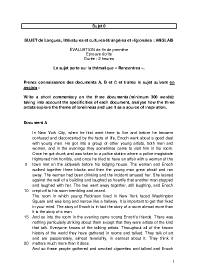Works of art can be acts of defiance and used as a form of protest. Most artists question the way things are but some artists also see themselves as activists whose role is to bring about change. Art can thus be used to raise awareness of social or political problems and spark a debate. Protest artists include writers, painters, photographers, film makers, singers and musicians.
For example, The Grapes of Wrath (1939) by J. Steinbeck is often described as a "novel of social protest". The novel, set during the Depression, tells the heart wrenching story of a family of migrant agricultural workers who are forced to leave Oklahoma for California.
During the 60s, protest songs, such as Bob Dylan's Blowin' in the Wind or P. Seeger's Bring Them Home, were an integral part of the Civil Rights Movement, the counterculture and the opposition to the War in Vietnam. American folk singer Pete Seeger, who rose to fame in the 60s is even described in his New York Times obituary as "a catalyst for social change".
A street artist like Banksy has drawn attention to the plight of refugees and the absurdity of Brexit among other topics.
British film maker Ken Loach in one of his latest films Sorry We Missed You denounces the evils of the gig economy.




